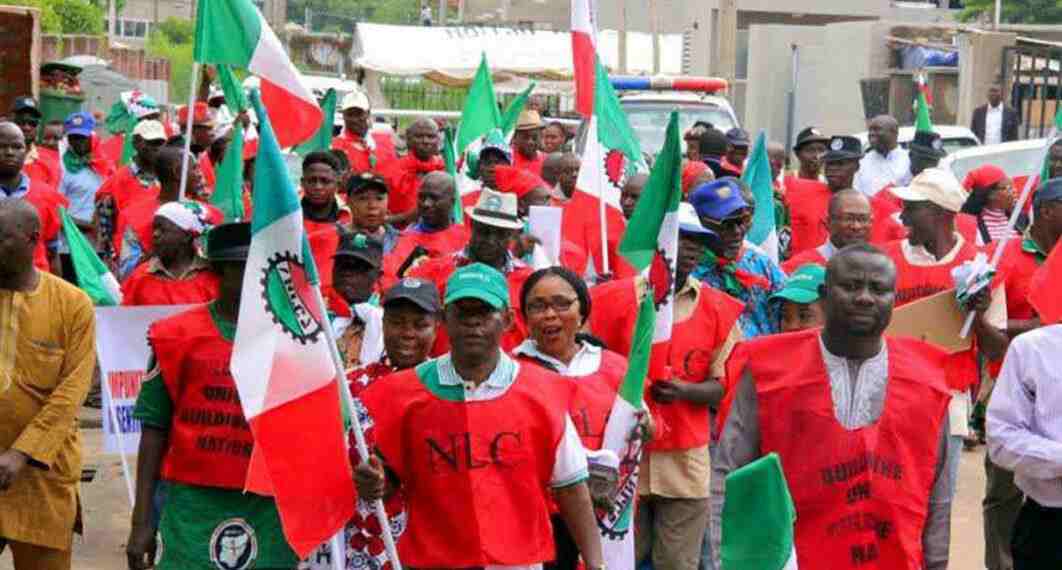Business
Fuel subsidies may hit N4trillion as oil price inches towards $100

By Uche Chris
Concern and anxiety is growing in government as the price of crude oil in the international market continues to soar toward $100 per barrel last week fueled by the growing tension and threaten of Russia’s invasion of Ukraine. Russia is the second largest producer of oil after Saudi Arabia in the cartel of OPEC + and any military engagement by Russia will disrupt its oil supply. By weekend, oil price, which reached $96 per barrel rested at $93.
Official sources hinted that already the fuel subsidy budget of N2.5 trillion has become unrealistic and will have to be drastically adjusted upward to align with the present price level, which was not anticipated at the time the budget was proposed on January 21, 2022.
According to the NNPC sources, the proposal was based on a worst case price scenario of $60 per barrel, and any price above the benchmark will definitely demand increase in the subsidy budget. With the spike in oil price, land cost of petroleum products rose from N280 to N380 per litre. In U.S, domestic fuel price also rose from $2.8 to $3.8 per gallon between January and last week.
This comes also against the back drop of production shortfalls, which had persisted in the past five years as a result of declining investment and oil theft through vandalism. Nigeria’s OPEC quota for the year 2022 is 2.66m barrels per day, which was recently raised to 2.74 barrel per day at the January in response to pressure from consumer countries to mitigate high price.
December monthly oil monitoring report, MOMR, showed that Nigeria’s output was lower at 1.19 mbpd than 1.2 mbpd in November 2021. Nigeria was supposed to produce under OPEC quota of 1.66 mbpd in January and 1.7 m in February 2022 but has been stock at less than 1.5 m since last year. The oil output benchmark for the 2022 budget is 2.8 mbpd, which experts have described as too optimistic.
In 2021, Nigeria recorded a production deficit of 200 million barrels per year, which at $50 per barrel amount to about $10 billion. Nigeria’s rig count dropped further from seven to six by December against the 10 rigs that were active in the third quarter of 2021. This followed rising divestment by international oil companies, IOCs, rising cost of exploration in deep waters, frequent oil spills, and vandalism, which cost the country $3.5 billion in revenue.
According to the report, OPEC is expected to raise output by four million in 2022 to a total of 100 mbpd. However, Nigeria is not likely to benefit from this production increase as a result of its production challenges that have constrained its capacity to meet its official Opec quota. Experts believe that it is this production hiccups that are responsible for the revenue pressures on government compelling it to resort to uncontrollable borrowing.
Nigeria’s revenue pressures have been compounded by the postponement of removal of fuel subsidy by 18 months, initially slated for June 2022, as contained in Petroleum Industry Act of 2021. With oil price approaching $100 per barrel the cost of importation of petroleum product is consequently expected to rise. Already the pump price of diesel and kerosene have jumped from N320 and N280 per litre respectively in January to N450 and N350 per litre last week.
In the past few week, the country has been enmeshed in a toxic fuel debacle that has virtually crippled major cities such as Lagos, Abuja and Port Harcourt, and damaged thousands of vehicles. Experts believe that importation of this methanol laden fuel may not be unconnected with price to reduce the cost of subsidy or undercovery. Currently, the landing cost of fuel is about N380 per litre, while the pump price remains at N162, with a subsidy of N218 per litre.
Mr. Rotus Odiri, an economic analyst said that Nigeria is going pay a heavy price for its dependence on oil, and particularly making a political decision to postpone removal of subsidy as oil price continues to go up.
“Nigeria depends on oil for 60 percent of revenue and 90 percent of foreign exchange for too long. This government came to power promising to diversify the economy but here we are with subsidy that is a quarter of the annual budget, which will continue rise with higher oil price.
“With oil price at an eight year high Nigeria’s fuel import cost as well as the subsidy rise. In fact, the 2022 budget is essentially dead, because subsidy is going to consume much of the revenue accruals from crude price”.









